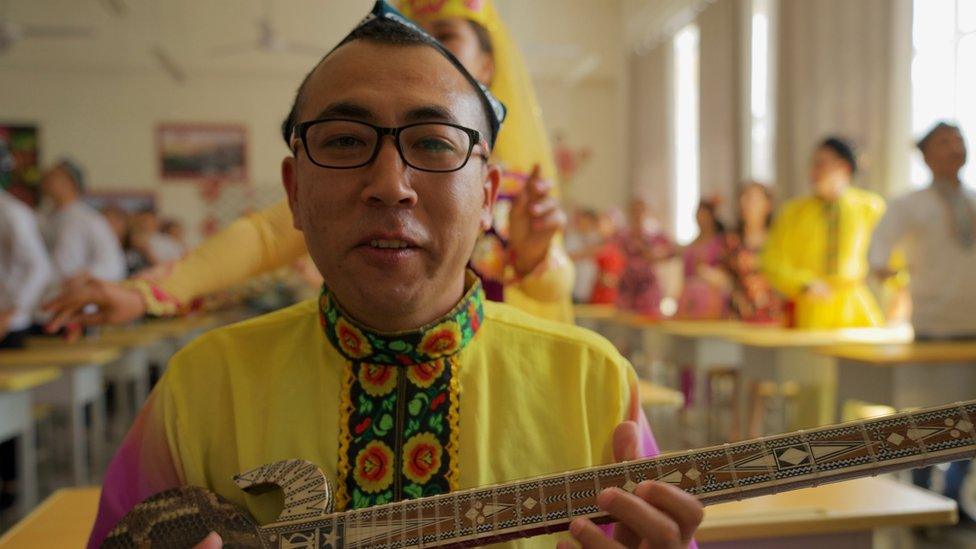Data leak reveals how China 'brainwashes' Uighurs in prison camps
- Published
"An electric baton to the back of the head" - a former inmate described conditions at a secret camp to the BBC
Leaked documents detail for the first time China's systematic brainwashing of hundreds of thousands of Muslims in a network of high-security prison camps.
The Chinese government has consistently claimed the camps in the far western Xinjiang region offer voluntary education and training.
But official documents, seen by BBC Panorama, show how inmates are locked up, indoctrinated and punished.
China's UK ambassador dismissed the documents as fake news.
The leak was made to the International Consortium of Investigative Journalists (ICIJ), external, which has worked with 17 media partners, including BBC Panorama and The Guardian newspaper in the UK.
The investigation has found new evidence which undermines Beijing's claim that the detention camps, which have been built across Xinjiang in the past three years, are for voluntary re-education purposes to counter extremism.
About a million people - mostly from the Muslim Uighur community - are thought to have been detained without trial.
The leaked Chinese government documents, which the ICIJ have labelled "The China Cables", include a nine-page memo sent out in 2017 by Zhu Hailun, then deputy-secretary of Xinjiang's Communist Party and the region's top security official, to those who run the camps.
The instructions make it clear that the camps should be run as high security prisons, with strict discipline, punishments and no escapes.
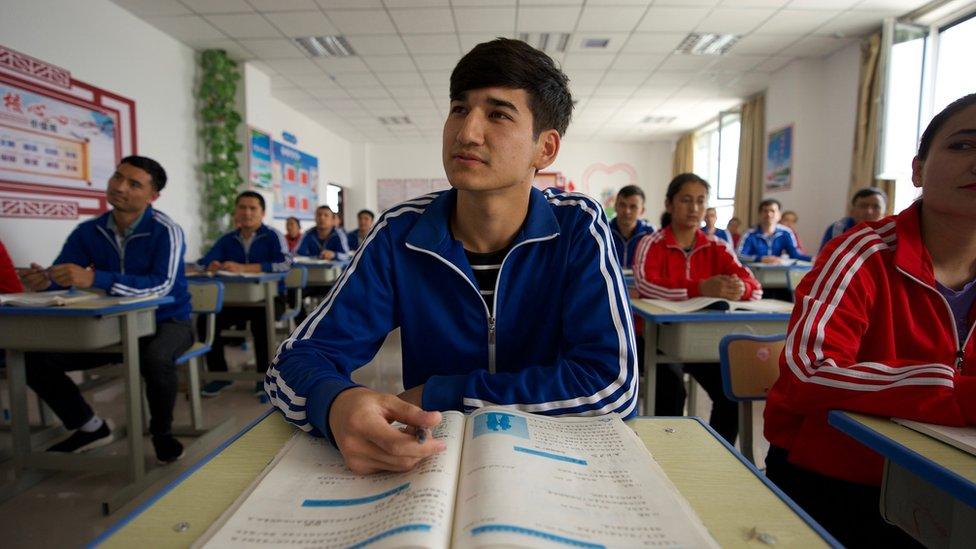
The Chinese government says the camps are for voluntary re-education
The memo includes orders to:
"Never allow escapes"
"Increase discipline and punishment of behavioural violations"
"Promote repentance and confession"
"Make remedial Mandarin studies the top priority"
"Encourage students to truly transform"
"[Ensure] full video surveillance coverage of dormitories and classrooms free of blind spots"
The documents reveal how every aspect of a detainee's life is monitored and controlled: "The students should have a fixed bed position, fixed queue position, fixed classroom seat, and fixed station during skills work, and it is strictly forbidden for this to be changed.
"Implement behavioural norms and discipline requirements for getting up, roll call, washing, going to the toilet, organising and housekeeping, eating, studying, sleeping, closing the door and so forth."
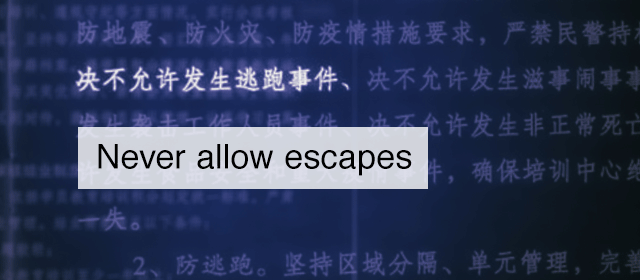
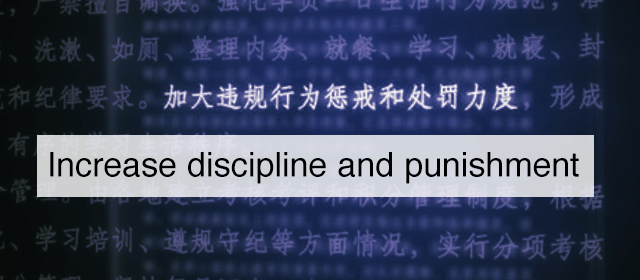
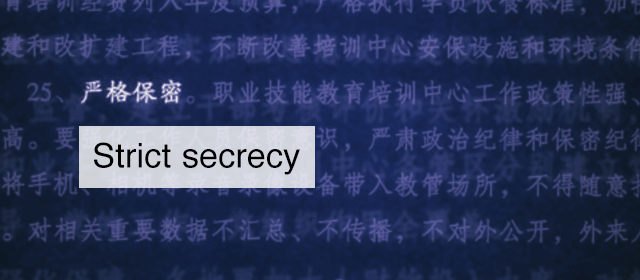
Other documents confirm the extraordinary scale of the detentions. One reveals that 15,000 people from southern Xinjiang were sent to the camps over the course of just one week in 2017.
Sophie Richardson, the China director at Human Rights Watch, said the leaked memo should be used by prosecutors.
"This is an actionable piece of evidence, documenting a gross human rights violation," she said. "I think it's fair to describe everyone being detained as being subject at least to psychological torture, because they literally don't know how long they're going to be there.
The memo details how detainees will only be released when they can demonstrate they have transformed their behaviour, beliefs and language.
"Promote the repentance and confession of the students for them to understand deeply the illegal, criminal and dangerous nature of their past activity," it says.
"For those who harbour vague understandings, negative attitudes or even feelings of resistance… carry out education transformation to ensure that results are achieved."
Ben Emmerson QC, a leading human rights lawyer and an adviser to the World Uighur Congress, said the camps were trying to change people's identity.
"It is very difficult to view that as anything other than a mass brainwashing scheme designed and directed at an entire ethnic community.
"It's a total transformation that is designed specifically to wipe the Muslim Uighurs of Xinjiang as a separate cultural group off the face of the Earth."

China's hidden camps


Detainees are awarded points for their "ideological transformation, study and training, and compliance with discipline", the memo says.
The punishment-and-reward system helps determine whether inmates are allowed contact with family and when they are released. They are only considered for release once four Communist Party committees have seen evidence they have been transformed.
The leaked documents also reveal how the Chinese government uses mass surveillance and a predictive-policing programme that analyses personal data.
One document shows how the system flagged 1.8m people simply because they had a data sharing app called Zapya on their phone.
The authorities then ordered the investigation of 40,557 of them "one by one". The document says "if it is not possible to eliminate suspicion" they should be sent for "concentrated training".
The documents include explicit directives to arrest Uighurs with foreign citizenship and to track Uighurs living abroad. They suggest that China's embassies and consulates are involved in the global dragnet.
Chinese ambassador to the UK Liu Xiaoming said the measures had safeguarded local people and there had not been a single terrorist attack in Xinjiang in the past three years.
"The region now enjoys social stability and unity among ethnic groups. People there are living a happy life with a much stronger sense of fulfilment and security.
"In total disregard of the facts, some people in the West have been fiercely slandering and smearing China over Xinjiang in an attempt to create an excuse to interfere in China's internal affairs, disrupt China's counter-terrorism efforts in Xinjiang and thwart China's steady development."
- Published12 February 2019
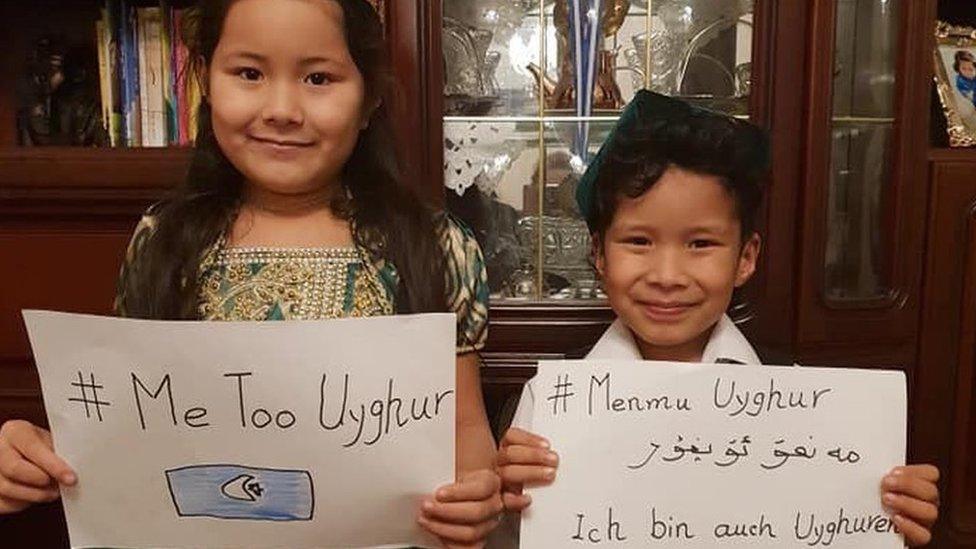
- Published2 May 2019
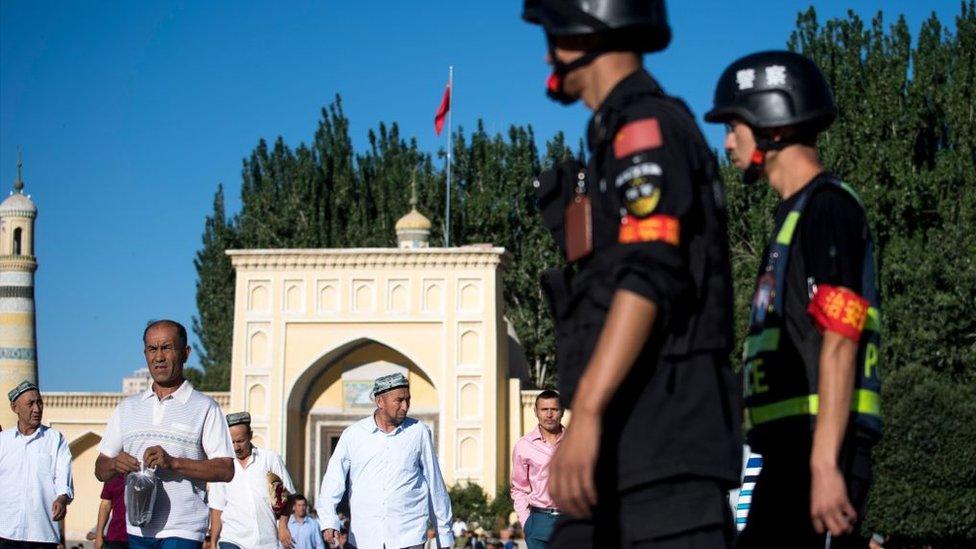
- Published12 February 2019
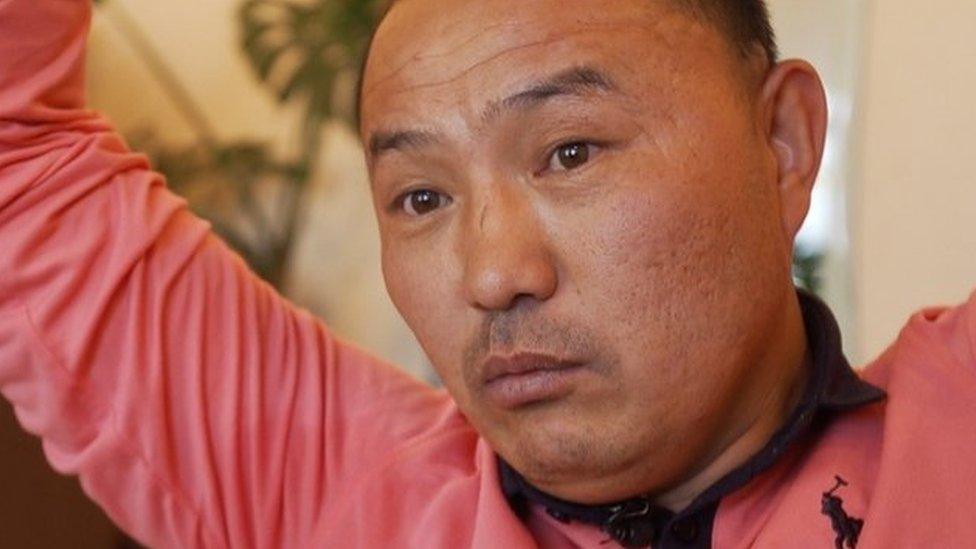
- Published8 November 2018
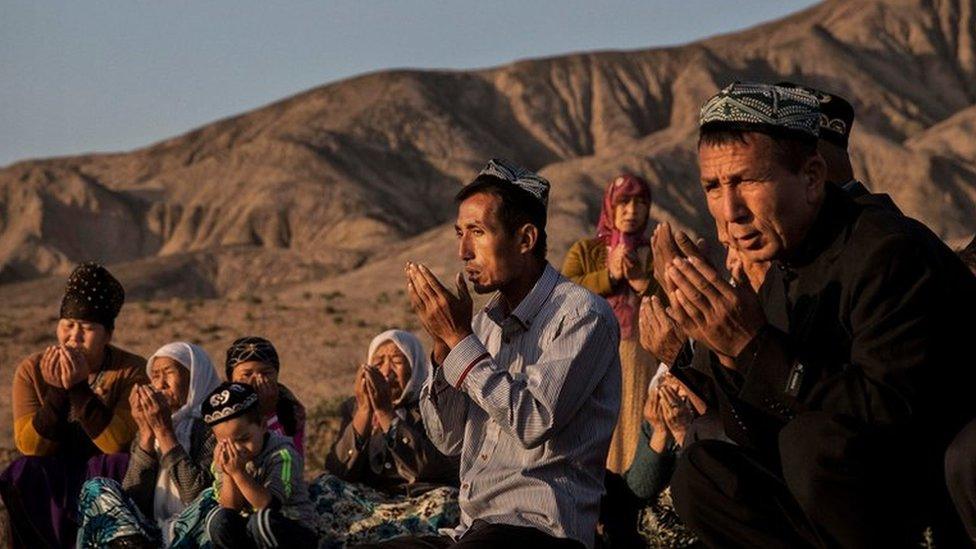
- Published11 October 2019
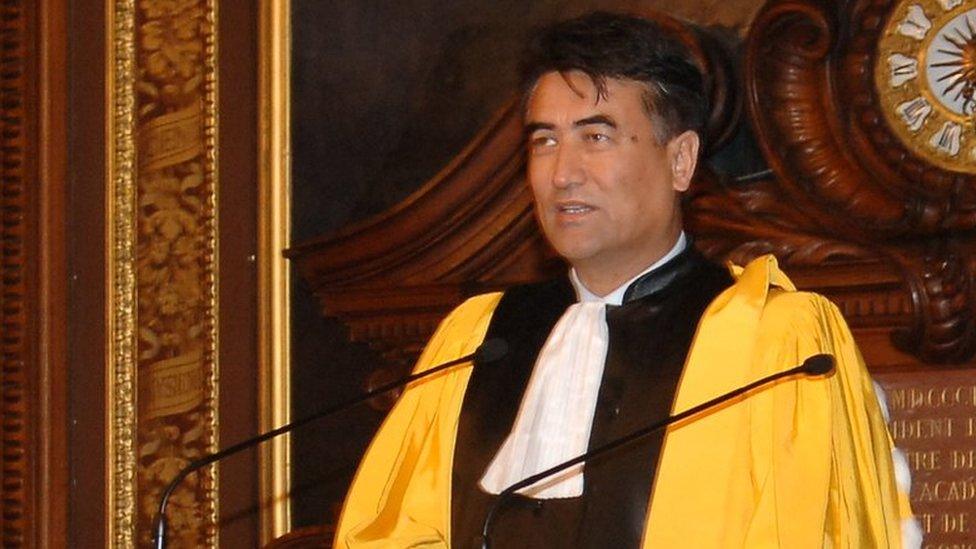
- Published10 October 2018
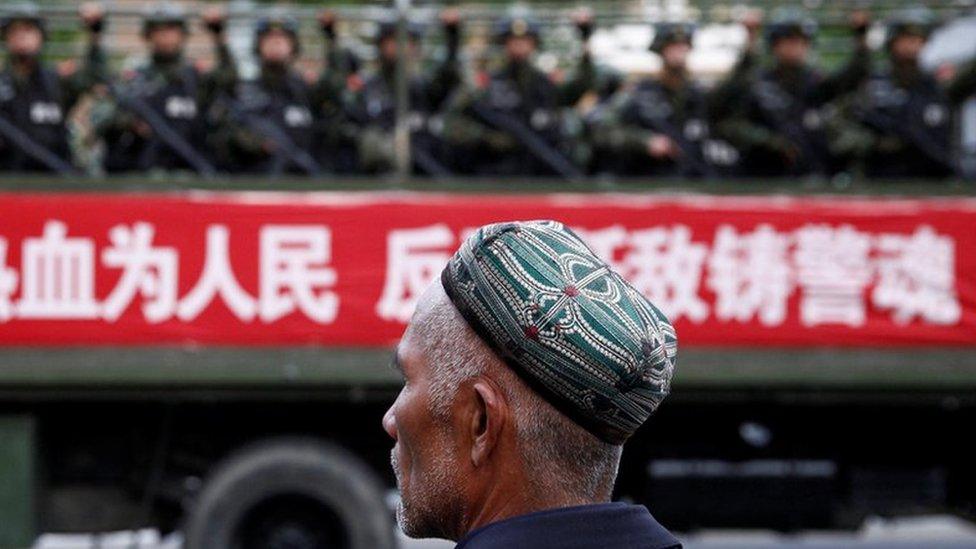
- Published4 July 2019
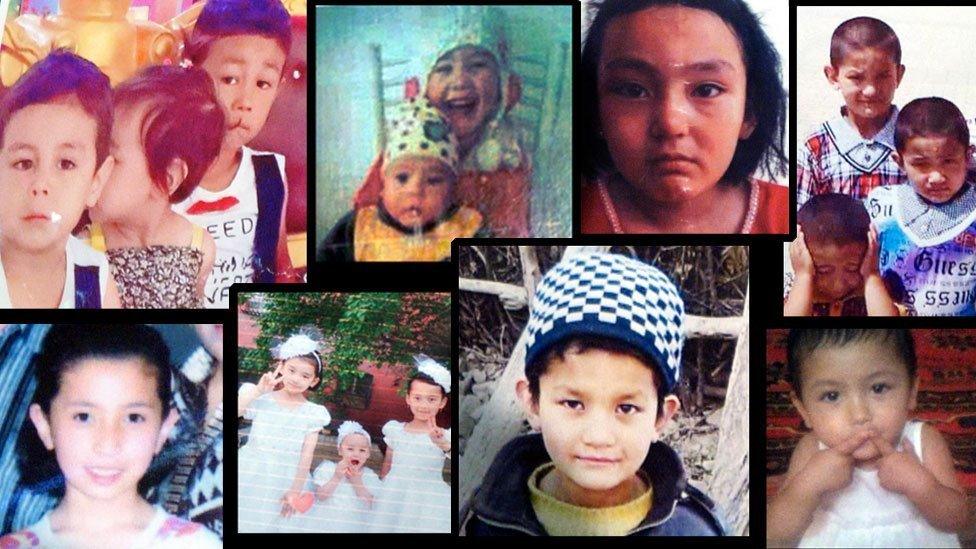
- Published21 June 2019
